Why a Friendly Smile Matters in Recruiting
As job seekers embark on their quest for the perfect career opportunity, the role of a recruiter takes center stage in this pivotal journey. The interaction between candidates and recruiters isn’t just a formality; it can significantly impact the candidate’s perception of the job and the company. In this blog post, we explore why recruiter behavior matters and how a friendly approach can be a game-changer in the hiring process.
Why Recruiter Behavior Matters
Recruiters often serve as the bridge between candidates and the companies they aspire to work for. As the initial point of contact, recruiters play a crucial role in shaping a candidate’s perception of the job opportunity and the organization. Here’s why their behavior matters:
1. First and Only Contact: Recruiters are often the applicant’s first and sometimes only connection with the company. They are the source of information about the job opportunity.
2. Pitching the Role: It’s the recruiter’s responsibility to pitch the role and the company to candidates, generating interest and enthusiasm about the job.
3. Job Offer Acceptance: Recruiters are instrumental in convincing candidates to accept a job offer, making their role pivotal in the hiring process.
4. Signaling Company Likelihood: A candidate’s experience during interviews can signal to them whether the company is likely to extend a job offer.
5. Filling Knowledge Gaps: Candidates may use their interview experience to fill knowledge gaps about the company, shaping their perception.
In essence, a candidate’s perception of a job opportunity can be significantly influenced by recruiter behavior. Positive and friendly recruiter behavior can lead to an improved candidate experience and better hiring outcomes.
The Essence of Recruiter Friendliness
But what exactly do we mean by “recruiter friendliness”? Researchers in a recent study delved into the impact of friendliness, both friendly and unfriendly, in the recruitment process. In this experiment, participants watched a video simulation of a campus recruitment interview while placing themselves in the role of a job applicant. The simulation included an actor playing the role of the recruiter, with friendliness conveyed primarily through non-verbal behavior.
Friendly non-verbal behavior included smiling, direct eye contact, head nodding, and a forward trunk lean. On the other hand, unfriendly non-verbal behavior involved frowning, avoiding eye contact, looking around, and leaning back in the chair.
After the simulation, the participants rated the recruiter’s friendliness and assessed the job opportunity based on various attributes. Notably, they evaluated:
• Unknown job characteristics.
• Probabilities of receiving a job offer.
• Attraction to a friendly recruiter.
• Attraction to the employment opportunity.
• Willingness to pursue the opportunity.
The Impact of Friendly Recruiter Behavior
The results were clear: participants were more attracted to a friendly recruiter and were more inclined to pursue the employment opportunity. Friendly recruiter behavior also influenced the perception of the likelihood of receiving a job offer. This is a significant finding, as candidates are more likely to pursue job opportunities they believe they have a good chance of obtaining.
In conclusion, the study emphasizes the importance of recruiter friendliness. Organizations must recognize that the behavior of their recruiters during interviews sends signals to applicants. A friendly recruiter not only attracts candidates but also signals the organization’s interest in them. As a recruiter, small behavioral changes, like maintaining eye contact, nodding, leaning in, and smiling, can make a substantial impact on the hiring process. After all, a friendly face can be the key to unlocking a candidate’s potential and securing top talent.
So, recruiters, remember the power of friendliness – it can be your secret weapon in the quest for the best hires.




